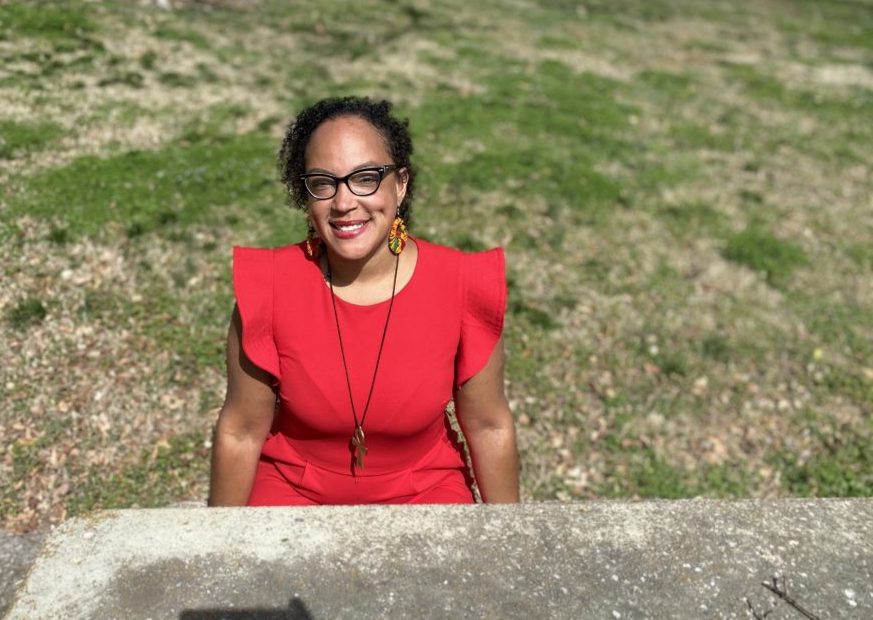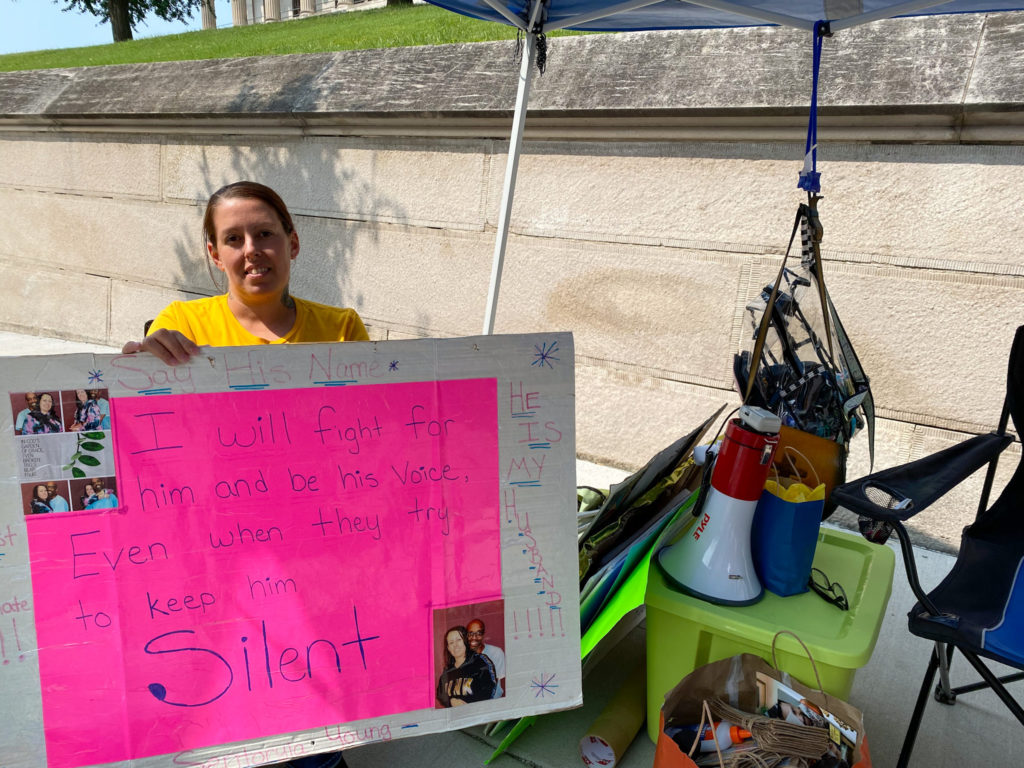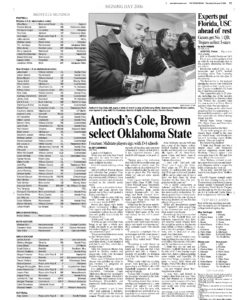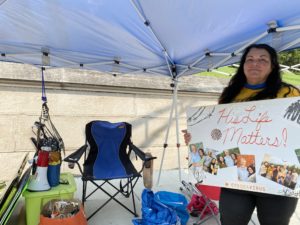
At first, Dawn Harrington blamed herself when her younger brother went to prison. She questioned whether she’d been a good influence. She developed anxiety, then fell into a deep depression.
“I didn’t want to get up,” said Harrington. “The first semester that he was gone I think I got straight Fs, and I was in college. I think I got straight F’s the second semester as well.”
Harrington knows firsthand that incarceration doesn’t just affect the people behind bars. It touches the whole family, as relatives struggle to support their loved ones from the outside.
In the past year, there’s also been the added stress stemming from the fear that prisoners will get sick from COVID or die from it. And the stress and anxiety those family members take on often result in long lasting physical and mental health issues.
While Harrington’s brother was incarcerated, she felt her health slipping away. Depression eventually affected her eating habits. She lost her appetite and hated getting out of bed in the morning.
Things got worse when her brother became closed off and hesitant to share his emotions during their calls and visits. She felt they were losing their childhood connection.
“It’s somewhat kind of like a grieving lost, like somebody dies,” she said. “Because it is, in some ways, that level of separation.”
Harrington’s brother spent just more than a decade in prison, which she describes as an emotional rollercoaster for the entire family.
 Free Hearts / Twitter
Free Hearts / Twitter At the start of the pandemic, the stress of worrying about the health of loved ones sparked small protests in downtown Nashville. One car creeped by with a map marked with the message, “#FreeThemAll.” Prison advocates say some loved ones have been driven to the hospital after being overwhelmed.
She remembers her dad hearing about her brother’s arrest on the news. The family was in disbelief. Her dad called the news station and threatened to sue them for defamation, unable to accept that the man on the screen was really his son. Then Harrington recalls her father dropping to the ground in their backyard in the middle of winter, after realizing the accusations were legitimate. He didn’t have on socks, shoes, or even a T-shirt, as he begged God to help the family.
Her mother, however, dealt with her emotions in a different way.
“He had a room in her house. It was literally memorialized for the whole time when he was gone,” she said. “And she would get so upset, like, even if one of our nieces and nephews would try to run in there and open the door.”
When Harrington’s brother was first released from prison, it brought a sense of peace to her family. It had been a struggle to balance their own life while also trying to support her brother. It was also costly to maintain regular communication with him. Many jails and prisons charge for phone calls and emails, and the fees can quickly add up.
It wasn’t long, though, before her family had to relive that experience.
‘I left out on 11 different medicines’
In 2008, Harrington herself was incarcerated while visiting New York. She was carrying a firearm registered in Tennessee, and charged with felony gun possession — because Tennessee permits aren’t recognized in New York.
Harrington served one year at New York City Riker’s Island jail complex. That’s when she realized that incarceration could make you sick.
“When I was incarcerated, I came in [on a] great bill of health,” she said. “I left out on 11 different medicines.”
Harrington still deals with the physical and mental health problems she attributes to her time in prison. She says issues she was already facing were exacerbated by her environment, like living in unsafe conditions. She’s since become an advocate for people in prisons, the formerly incarcerated, and their loved ones.
Harrington also heads Tennessee nonprofit Free Hearts. The group works to keep families connected during incarceration periods through support groups and classes for loved ones — both on the inside and the outside.
Kids whose parents are in prison can learn about coping skills and self-esteem, while adults behind bars can learn about how to listen, express their emotions and raise their children from afar.
Harrington works with hundreds of families each year, and she sees the daily toll incarceration takes on them. And when the pandemic made it hard for families to keep in touch last year, she rallied outside the Tennessee State Capitol to get people released.
 Samantha Max WPLN News
Samantha Max WPLN NewsShannon Young holds a sign featuring photos of her embracing her husband and the message, “I will fight for him and be his voice, even when they try to keep him silent,” at a protest in downtown Nashville last September.
The added stress of COVID, she says, brought many loved ones to their breaking points.
“They were worried before COVID, even more so worried now,” Harrington said. “It has sent a few family members to the hospital a couple of times. You know, elevated heart rates, just straight up hypertension.”
Some experts say COVID highlighted concerns that already exist.
“You see really negative effects on mental health [and] pretty big increases in major depressive disorder,” said Chris Wildeman, a professor at Duke University. “You see big decreases in life satisfaction.”
Wildeman studies the impact of incarceration on families. He says having a loved one incarcerated increases a person’s chance of experiencing homelessness, and even raises rates of alcohol and drug dependency.
Research has found that children with incarcerated parents are more likely to suffer from high cholesterol, asthma, drop out of school and develop ADHD and other learning disabilities.
For parents with incarcerated children, Wildeman says, the stress can take years off their lives.
“There’s new work now that’s coming out that really suggests that having a son incarcerated has large negative effects on mothers’ health,” he said.
This includes higher rates of heart attacks, strokes and heart failure, which typically affect Black Americans more than their white counterparts.
“That’s something that we really need to think about, because it could have big effects on racial disparities in healthy aging, which is a key public health issue in the United States,” Wildeman said.
And that concern weighs heavily on Christine Williams’ mind.
Worrying herself sick
Williams’ youngest son, Trey Cole, is currently serving time in a Tennessee state prison. He’s in his 30s.
Williams is 60 and obese. She fears she won’t live to see the day her son is released from prison. Sometimes she gets so worried about him that she starts to feel her body shutting down.
The high school football star was once a regular fixture in the sports pages of the local newspaper. Now, he’s about seven years into a 12-year sentence for aggravated robbery.

Trey Cole, featured in Nashville newspaper The Tennessean, was planning to play football at Oklahoma State before deciding to stay in Nashville to be with his child.
And sometimes Williams feels like she’s serving that sentence, too. She’s literally worried herself sick — worrying about her son and his health.
Some days tormenting headaches leave her head pounding. Other days, Williams gets so nauseated that she can’t hold down her food.
“Can you imagine having children, and it’s so devastating, you try to put it out of your mind and you just try not to even think of them? You don’t want to think they name,” she said. “You just want to put that out of your mind, and then get up tomorrow.”
Williams wanted to talk to her son, but sometimes, their conversations left her feeling drained and stressed. He’d complain about the little things like the food, and she’d calmly remind him: “It’s jail, baby.”
But when the pandemic hit, her son’s concerns got more serious. One day he called her crying — a rarity — begging for help. He was sick and he was scared. And Williams didn’t know what to do.
“My hands are tied,” she said. “There’s only a few things that I’m really able to do when I know that he is sick or there’s something that may be detrimental to his health.”
Finding peace
In the past, sometimes Williams had to ignore her son’s calls so that she could at least try to get a good night’s rest. But she hasn’t done that since the start of the pandemic. COVID has made it harder to communicate with loved ones because of prison lockdowns.
Many family members don’t know when they’ll have the next chance to talk to their loved ones. So every call is treasured.
In Tennessee, more than 6,500 people in state prisons have tested positive for the coronavirus and at least 42 have died.
 Samantha Max WPLN News
Samantha Max WPLN NewsVicky Scroggins holds a sign at a Free Hearts protest outside the Tennessee State Capitol. Free Hearts is a nonprofit started by Dawn Harrington, who was formerly incarcerated.
Williams’ son had COVID during the summer. He later broke out with sores all over his body, a painful rash, that she says went untreated for three months.
When someone inside sent her photos of her son, covered in swollen bumps, she said she got down on her knees and prayed. Then she got on the phone to get her son help.
The nonstop calls and texts to prison and health officials took a huge toll on her body.
“When I get it like that, I may stay like that for two days. Then I know this is making me sick,” she said. “So I know that I got to find a way to shake this to be OK.”
Williams finds moments of peace in meditating, and reading spiritual books. She also prays a lot. And, when she’s feeling up to it, she tends to the tomatoes in her garden. She’s trying to take better care of her body, so be there for her son and her loved ones on the outside.
Harrington says with so many people affected by incarceration — far beyond those who are actually serving time — she wants people to look at these experiences as a nationwide public health crisis.
“Think about this as not isolated from you, and understanding that this system is not closed off from you,” she said. “Any impacts that this system has on our neighbors, it does impact you as well because this impacts our overall community health.”

